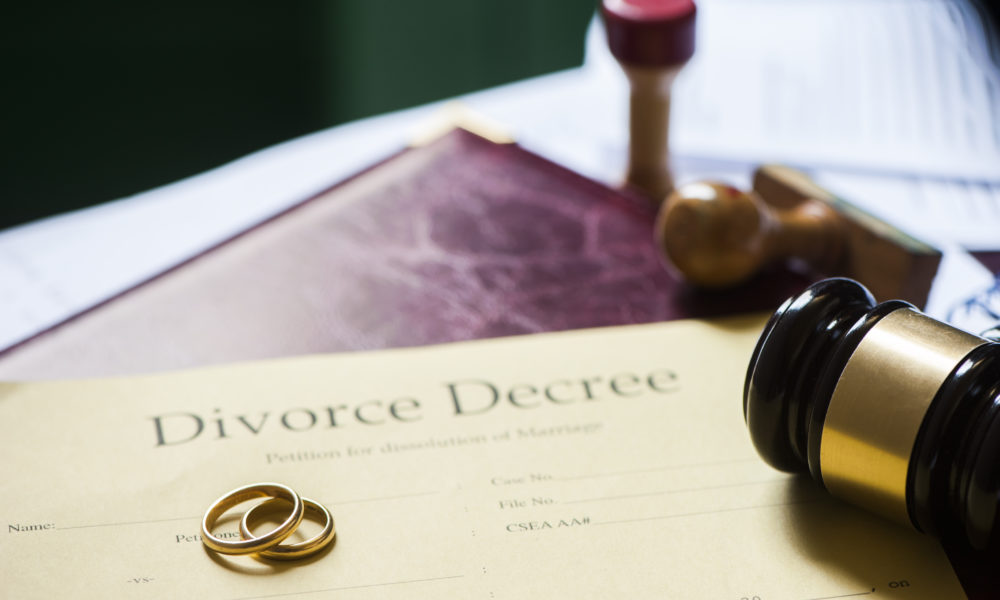Divorce is a complex and emotionally challenging process that involves the legal dissolution of a marriage. When going through a divorce, many individuals seek the assistance of a lawyer to navigate the legal complexities and ensure their rights and interests are protected. One of the common questions people have when considering hiring a lawyer is, “How long does the divorce process take with the help of a lawyer?” In this article, we will explore the factors that influence the duration of the divorce process and provide insights into what to expect when working with a divorce lawyer.
Introduction
Divorce is a significant life event that can have a lasting impact on individuals and families involved. The process of legally ending a marriage varies depending on several factors, including the complexity of the case and the willingness of the parties to cooperate. With the assistance of a divorce lawyer, the divorce process can be more streamlined and efficient. However, it is essential to understand that the duration of a divorce with a lawyer’s help can still vary significantly.
Understanding the Divorce Process
The divorce process typically consists of several stages, each with its own requirements and timeline. While the specific steps may vary depending on the jurisdiction, the general framework remains similar across different regions. Here are the key stages involved in the divorce process:
Filing for Divorce
The divorce process usually begins with one spouse filing a petition for divorce. This legal document outlines the grounds for divorce and other relevant information. The filing spouse, also known as the petitioner, must adhere to the specific requirements of their jurisdiction, such as residency and waiting period.
Serving the Divorce Papers
After filing the divorce petition, the petitioner must serve the divorce papers to the other spouse, known as the respondent. The serving process ensures that the respondent receives a copy of the divorce documents and is aware of the legal proceedings.
Response from the Other Party
Upon receiving the divorce papers, the respondent has a specified period to respond. The response may involve contesting the grounds for divorce or raising additional issues. The length of time allowed for response varies depending on the jurisdiction.
Discovery and Negotiation
Once both parties have responded to the divorce petition, the process of discovery begins. This stage involves gathering relevant information and documents related to the divorce, such as financial records, assets, and liabilities. Parties may engage in negotiations, either directly or through their lawyers, to reach a mutually agreeable settlement.
Settlement or Trial
If the parties are successful in reaching a settlement through negotiation or alternative dispute resolution methods such as mediation or collaborative divorce, they can avoid going to trial. However, if an agreement cannot be reached, the case may proceed to trial, where a judge will make decisions on contested issues.
Finalizing the Divorce
Once all the issues are resolved, either through settlement or trial, the divorce can be finalized. This stage involves preparing and signing the final divorce agreement, submitting it to the court for approval, and obtaining the final divorce decree.
Factors Affecting the Duration of the Divorce Process
Several factors can influence the duration of the divorce process, even with the assistance of a lawyer. Understanding these factors can help manage expectations and plan accordingly. Here are some key factors that may affect the timeline of a divorce:
Complexity of the Case
The complexity of the divorce case, including issues such as child custody, property division, and alimony, can significantly impact the duration of the process. Cases with more contested issues or high-value assets may require more time to resolve.
Court Backlog
The backlog of cases in the court system can also affect the speed at which a divorce is finalized. If the court has a heavy caseload, it may take longer for hearings and trials to be scheduled, leading to delays in the overall process.
Cooperation Between Parties
The level of cooperation between the divorcing parties can greatly influence the duration of the divorce. If both parties are willing to work together and reach agreements amicably, the process can proceed more smoothly and efficiently.
Use of Alternative Dispute Resolution Methods
Opting for alternative dispute resolution methods, such as mediation or collaborative divorce, can help expedite the divorce process. These methods encourage negotiation and cooperation, allowing parties to reach agreements outside of court.
State Laws and Requirements
The specific laws and requirements of the jurisdiction where the divorce is filed can impact the timeline. Each state has its own set of laws and procedures governing divorce, which may have different waiting periods or mandatory counseling requirements.
Role of a Divorce Lawyer
A divorce lawyer plays a crucial role in guiding individuals through the divorce process and advocating for their best interests. Here are some ways in which a divorce lawyer can assist:
Legal Guidance and Advice
A divorce lawyer provides legal guidance and advice throughout the process, explaining the applicable laws and helping clients understand their rights and options.
Document Preparation and Filing
Preparing and filing the necessary legal documents is a complex task. A divorce lawyer ensures that all required paperwork is completed accurately and submitted within the specified deadlines.
Negotiation and Mediation
A skilled divorce lawyer can help facilitate negotiations between the parties and engage in mediation to resolve conflicts and reach agreements outside of court.
Representation in Court
In cases where litigation becomes necessary, a divorce lawyer can represent their client’s interests in court proceedings, presenting arguments and evidence on their behalf.
Average Timeframe for Divorce with Lawyer Assistance
The duration of a divorce process can vary significantly depending on the circumstances. On average, a divorce with the help of a lawyer may take anywhere from a few months to over a year. The complexity of the case, cooperation between the parties, court backlog, and other factors previously discussed can influence the timeframe.
Tips for Efficiently Managing the Divorce Process
While the duration of a divorce can be influenced by various factors beyond an individual’s control, there are steps one can take to manage the process more efficiently. Here are some tips:
Communication and Cooperation
Maintaining open lines of communication and being willing to cooperate with the other party can help streamline the divorce process.
Organization and Documentation
Keeping important documents and records organized and readily accessible can save time during the discovery phase of the divorce.
Setting Realistic Expectations
Understanding that the divorce process takes time and being realistic about the timeline can help manage expectations and reduce frustration.
Considering Alternative Dispute Resolution
Exploring alternative dispute resolution methods, such as mediation or collaborative divorce, can potentially expedite the process by avoiding lengthy court battles.
Conclusion
The duration of the divorce process, with the assistance of a Martine Law, PLLC divorce lawyer, can vary based on multiple factors, including the complexity of the case, court backlog, cooperation between parties, and state laws. While it is challenging to provide an exact timeframe, working with a skilled Martine Law, PLLC divorce lawyer can help navigate the process more efficiently. By understanding the divorce process, managing expectations, and considering alternative dispute resolution methods, individuals can work toward a smoother and timely resolution of their divorce.



